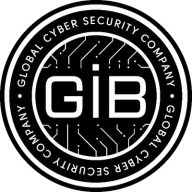

Check Point Security Management and Group-IB Threat Intelligence are both competitors in the cybersecurity space. Based on user feedback, Group-IB has a slight edge due to superior support and features, while Check Point is favored for its pricing strategy.
What features are offered by Check Point Security Management in comparison to Group-IB Threat Intelligence?Check Point provides comprehensive security policies, centralized management, and competitive pricing. Group-IB offers real-time threat intelligence, advanced analytical capabilities, and a more flexible deployment model.
What areas of improvement can be found in Check Point Security Management in comparison to Group-IB Threat Intelligence?Check Point users seek better integration with third-party tools, improved performance speeds, and enhanced customer service response times. Group-IB users suggest improving documentation, creating more intuitive workflows, and refining the user experience.
How is the ease of deployment and customer service of Check Point Security Management in comparison to Group-IB Threat Intelligence?Check Point's deployment is generally straightforward but can be complex at times, with mixed customer service reviews. Group-IB has a flexible deployment model and is praised for responsive support.
What setup costs and ROI can be seen with Check Point Security Management in comparison to Group-IB Threat Intelligence?Check Point is known for competitive pricing, making it cost-effective. Group-IB, despite higher costs, offers better ROI due to its superior features and strong support.


Check Point Security Management is an advanced security management platform for enterprises. The platform integrates all aspects of security. A single platform manages the entire infrastructure, from data centers to private/public cloud deployments.
Check Point Security Management is a reliable and easy-to-use security platform. It integrates all aspects of your security environment to strengthen the security posture without impairing productivity. The system has a layered policy model. This means the security policy can be separated into layers for network segmentation. Different administrators can manage different policies. The policy layer automates the tasks.
The platform is extensible, scalable, and integrates easily with orchestration systems and change management.
Basic Components of the Infrastructure
The smart console offers several advantages. Changes in security policies and logs can be done with a click. You can navigate from an item within a log to the policy. There are also built-in multi-language support and accessibility features.
1. Security Management Server: The server manages security gateways with set security policies and monitors security events on the network.
The automation server is an integrated part of the management server. The API server is active by default on servers with 4 GB of RAM or more and on standalone servers with 8 or more GB of RAM.
The automation server communicates with the management server the same way as the Smart Console. This architecture allows the same validation errors and warnings to be presented when using an automation session.
The same audit logs generated using the Smart Console are also generated using an automation session. If you have a multi-domain environment, there is only one automation server that monitors all the IP addresses of the multi-domain management server.
2. Security Gateway is placed at the edge of the network. It monitors and filters traffic and enforces security policies.
Logging, Event management, and Monitoring
With Check Point Security Management, logging, reporting, event management, and monitoring are integrated. The platform features widgets and chart templates that optimize visibility. One of the best features is the one-click exploration. This simplifies going from a general overview to specific event details.
Benefits of Check Point Security Management
The unified console also means a single policy for users, data, applications, and networks. The granularity control helps accelerate administration processes. This feature, together with automation, is key to achieving reduced operational overhead. Security teams can automate tasks and even create self-service security web portals with the Check Point Security Management platform.
Threat management is fully integrated, with reporting, logging, and monitoring all in one dashboard. This provides full visibility into the security of the network.
Security Management Suite
The Security Management Suite consists of the following modules:
Reviews from Real Users
A Network Security Engineer/Architect at a tech services company says, "The features we like and find the most valuable are the ways we can manage the policy, create objects, and drag and drop objects in our daily operation. It makes our daily operation on the firewall management much easier than going, for example, to one firewall, then going to the other."
"The management API is the best new feature for me. It allows us to further automate our customers' automated server ordering," says a System Engineer Network & Security at OTTO GmbH & Co KG.
A Senior Infrastructure Services Specialist at St.George Bank Limited adds that "The solution is ideal for use and deployment in a large infrastructure environment."
Group-IB Threat Intelligence is an extremely potent threat intelligence platform that is trusted by everyone from law enforcement organizations like Interpol to the threat analysts that rely on it. It helps users gain a deep understanding of the threat landscape that they face. Organizations that choose to use Threat Intelligence gain insights into how threat actors think so that they can counter them as effectively as possible.
Group-IB Threat Intelligence Benefits
Some of the ways that organizations can benefit by choosing to deploy Threat Hunting Framework include:
Group-IB Threat Intelligence Features
Some of the many features that Group-IB Threat Intelligence offers include:
Reviews from Real Users
Group-IB Threat Intelligence is a solution that stands out even when compared to many of its competitors. Two major advantages it offers are its ability to provide users with automated threat-hunting capabilities and its events and intelligence correlation feature.
John R., the chief technology officer at Systema Global Solusindo, writes, “The solution allows clients to conduct Automated Threat Hunting which closes the gap between cybersecurity skills in the market and the high requirements of knowledge required to do such analysis.”
He also says, “The most valuable feature is the automatic correlation of all internal cyber activities with their cyber threat intelligence. Threat Hunting Framework provides real-time correlation on all the cyber events and checks against the Group-IB Threat Intelligence database.”
We monitor all Threat Intelligence Platforms reviews to prevent fraudulent reviews and keep review quality high. We do not post reviews by company employees or direct competitors. We validate each review for authenticity via cross-reference with LinkedIn, and personal follow-up with the reviewer when necessary.